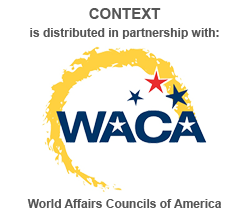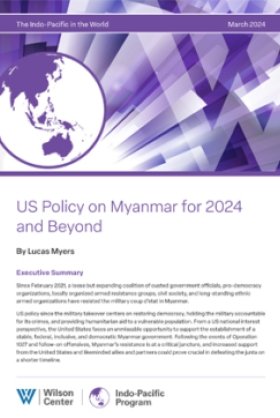Slovakia: From Velvet Revolution and Velvet Divorce to Today
Several weeks ago, the US Congress commemorated the 25th Anniversary of the Velvet Revolution with the unveiling of a bust of Vaclav Havel. One of the attendees, Pavol Demes, was part of the delegation that traveled to Washington with Havel in 1991. Demes is an internationally recognized NGO leader, a former government official, and also an author and photographer. We spoke with him about the anniversary and the current state of democracy in Slovakia, as well as about concerns over Russia’s aggression in Ukraine.
Pavol Demes is a well-known Slovak expert on international relations and civil society, author, and photographer. Prior to the Velvet Revolution, Demes was a bio-medical researcher at Comenius University in Bratislava. He is a graduate of Charles University in Prague. After democratic changes in 1989, he was co-founder of the Slovak Academic Information Agency-Service Center for the Third Sector—a leading NGO in the country—and served in the Slovak government, first at the Ministry of Education and later as Minister of International Relations (1991-92) and Foreign Policy Advisor to the President of the Slovak Republic Michal Kovac (1993-97). In 1999, he was awarded a six-month public policy research fellowship at the Woodrow Wilson Center in Washington D.C. From 2000 until 2010, he was the Director for Central and Eastern Europe of the German Marshall Fund of the United States based in Bratislava. Now he is non-resident senior fellow with GMF US and external advisor to the Slovak Ministry of Foreign Affairs. Since 2014, he has had his own program on international relations and diplomacy on an Internet TV of the Slovak Press Agency. He published several books and numerous articles. Demes has served on boards of domestic and international non-profit organizations, among others: the European Foundation Center, European Cultural Foundation, European Council on Foreign Relations and the European Endowment for Democracy. He played an important role in the EU’s civil society development program in Slovakia and democratization efforts in the Balkans and Eastern Partnership countries. Demes was also the recipient of the following awards: The EU-US Democracy and Civil Society Award (in 1998), the USAID Democracy and Governance Award (1999), Royal Dutch decoration Knight of the Order of Orange Nassau (2005), Yugoslav Star of First Class (2005), South East Europe Media Organization Human Rights Award (2009), and the Medal of Honor from the Friends of Slovakia (2011).

Hosted By

Global Europe Program
The Global Europe Program is focused on Europe’s capabilities, and how it engages on critical global issues. We investigate European approaches to critical global issues. We examine Europe’s relations with Russia and Eurasia, China and the Indo-Pacific, the Middle East and Africa. Our initiatives include “Ukraine in Europe” – an examination of what it will take to make Ukraine’s European future a reality. But we also examine the role of NATO, the European Union and the OSCE, Europe’s energy security, transatlantic trade disputes, and challenges to democracy. The Global Europe Program’s staff, scholars-in-residence, and Global Fellows participate in seminars, policy study groups, and international conferences to provide analytical recommendations to policy makers and the media. Read more









